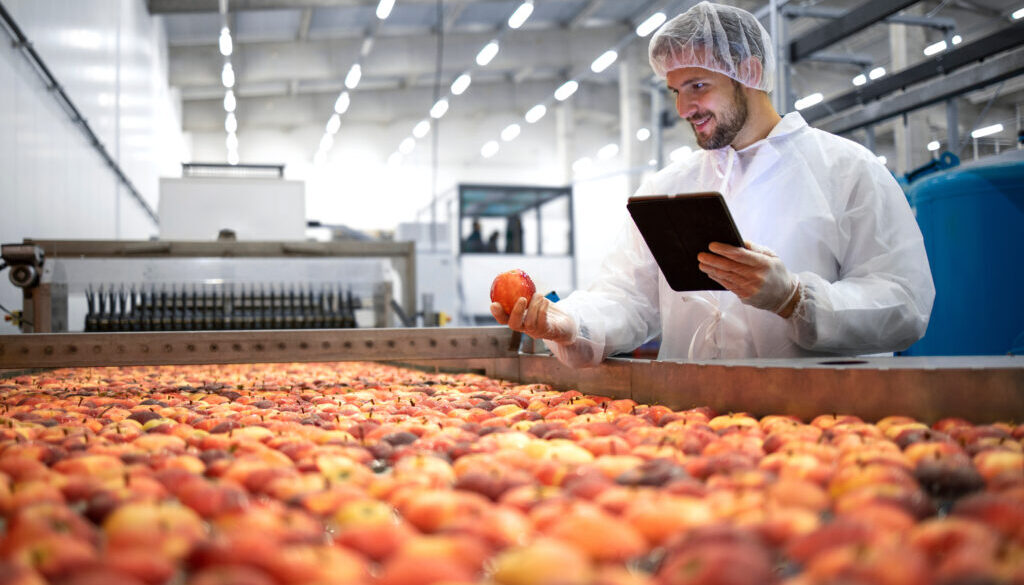The Salvadoran Free Zone Law now includes food production
Table of Contents
Contact the Central American Group to invest in El Salvador by locating a manufacturing facility in one of the CAG free zones.
The country’s legislature has recently expanded the Salvadoran Free Zone Law to include the processed and unprocessed food sectors. Additionally, aquaculture among the sectors will be subject to favorable tax incentives.
Earlier this month, the Salvadoran Legislative Assembly approved a reform to the Law on Industrial and Commercial Free Zones to include food production, processing, and commercialization among the sectors receiving preferential tax treatment.
The roots of El Salvador’s food processing industry can be traced back to its agricultural heritage. Historically, the nation has been known for producing coffee, sugarcane, and various fruits. The need to preserve and extend the shelf life of these products gave rise to rudimentary processing techniques such as drying, canning, and fermentation. Over time, these techniques evolved, influenced by modern technology and global market demands.
The reform of the Salvadoran law includes more than foodstuffs
The food processing industry in El Salvador is diverse, encompassing a wide range of products. Major players in this industry include both local and international companies. El Salvador’s food processing sector primarily produces processed foods, beverages, and agro-industrial products. These products. Include processed fruits and vegetables, dairy products, beverages (juices and alcoholic drinks), baked goods, and meat.
In addition to foodstuffs, the reform of the Salvadoran Free Zone Law also includes animal feed, chewing gum, and any other product or substance to make or treat food, natural or artificial, processed, semi-processed or unprocessed products intended for human ingestion and aquaculture.
Among the benefits of the reformed Salvadoran Free Zone Law is the exemption from taxes on the transfer of goods, tax on income, and municipal taxes.
A free zone is the area of the national territory where goods are allowed to enter as if they were not in the national customs territory.
The importance of the food processing industry and investment
The food processing industry is a vital contributor to El Salvador’s economy. It creates employment opportunities, from agricultural laborers to factory workers and skilled technicians. Additionally, the sector significantly drives the nation’s exports and contributes to foreign exchange earnings. Processed fruits and vegetables, for instance, are exported to regional markets and beyond. This industry also aids in adding value to raw agricultural products. This ultimately benefits farmers and enhances the agricultural supply chain.
The Economic Commission of the Legislative Assembly approved its favorable opinion on reforming the Salvadoran Free Zone Law after a visit to the Minister of Economy, María Luisa Hayem.
Although the government will prepare a regulation where, according to the official, “legal security is provided to companies,” Hayem explained that the reform of the
is “opening up the opportunity for investment in the area of food, not only in agriculture but also in agribusiness.”
She added that the reform also includes aquaculture, which provides for “those investments in farms, breeding, and cultivation of products such as shrimp, tilapia.”
With the Salvadoran Free Zone Law reform, investment projections for the “next months are projected to be more than $200 million in the very short term.”
Food in the broad sense
In response to a question from Deputy Anabel Belloso from the FMLN party, the Economy Minister assured that the food sector has been added to the Salvadoran Free Zone Law “in a broad sense.”
“We are talking about unprocessed foods. In addition, we are talking about semi-processed and processed vegetables. As an example, we consider companies that are dedicated to growing vegetables. They can be installed inside greenhouses in free zones, allowing us to expand production. As a result, we will have local inputs that unfortunately have not been available in the past to move on to an industrial transformation through further processing.”
Challenges and Opportunities
Despite its contributions, the food processing industry in El Salvador faces several challenges. One primary concern is the need to adhere to international quality and safety standards, especially when exporting products. Ensuring food safety and compliance with regulations can be demanding, requiring investment in infrastructure, technology, and skilled personnel. Additionally, fluctuations in raw material prices and energy costs can impact the industry’s profitability. Addressing these challenges requires collaboration between government agencies, industry stakeholders, and international partners.
The food processing industry in El Salvador has ample growth opportunities. Companies can tap into domestic and international markets by focusing on innovation and product diversification. There is potential to develop value-added products that cater to changing consumer preferences, such as organic or healthier alternatives. Collaborations with research institutions and universities could facilitate the development of new processing techniques and products. Moreover, investing in sustainable practices could improve resource efficiency and contribute to environmental conservation.
Conclusion
The food processing industry in El Salvador stands as a vital pillar of the nation’s economy. It connects the country’s agricultural production to global markets. The industry reflects the nation’s adaptability and progress from its historical roots in basic preservation techniques to the modern, diverse range of products manufactured today. Challenges are present, but so are opportunities for growth through innovation, sustainability, and strategic partnerships. As El Salvador continues to evolve, its food processing industry will play an instrumental role in nourishing progress and driving economic development. Including food production under the Salvadoran Free Zone Law will do much to further the industry’s growth.
Contact Us
Please use this form to contact us and we will respond as soon as possible:





